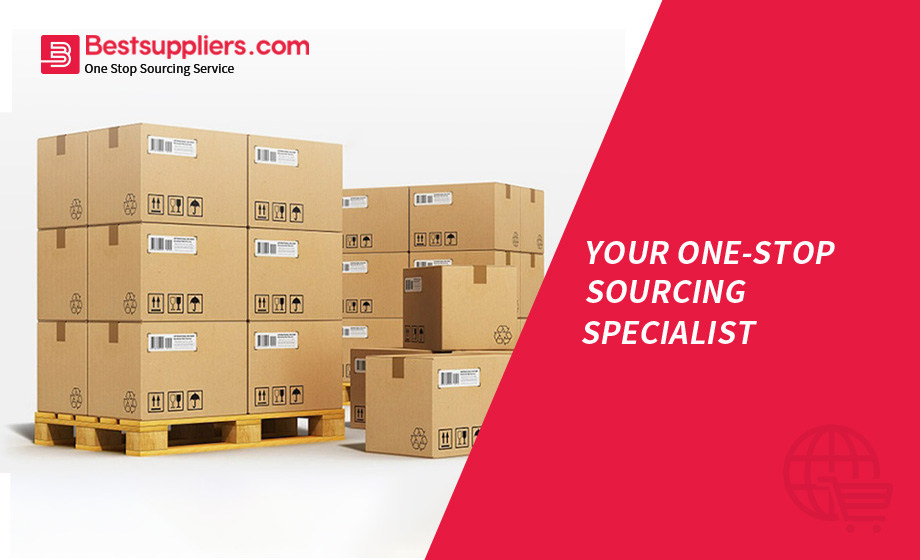How to get free samples

Introduction
In the ever-changing world of global business, companies are always looking for new ways to stay competitive. One such strategy is getting free samples from Chinese suppliers, which can offer many advantages to help your business grow. When you're starting or expanding your business, getting free samples from Chinese suppliers is crucial. These samples can open doors to success in the global market.
In this article, we'll explore why obtaining free samples from Chinese suppliers is essential and the valuable benefits they can bring to your company.
Benefits of Free Samples for Your Business
Quality Assurance: Free samples from Chinese suppliers let you see the quality of their products firsthand. This ensures that your business maintains a reputation for excellence and avoids investing in subpar goods.
- Cost Savings: Free samples help you test if the supplier's products meet your specific needs, saving you money by avoiding costly bulk purchases of unsuitable items.
- Market Research: Free samples provide a chance to conduct market research. You can learn about consumer preferences, identify trends, and adjust your product offerings accordingly.
- Building Relationships: Accepting free samples fosters a positive working relationship. It shows your willingness to engage in a mutually beneficial partnership, potentially leading to better deals in the future.
Understanding the Basics
To make the most of free samples from Chinese suppliers, you need to understand the key aspects of this practice.
What Are Free Samples from Chinese Suppliers?
Free samples from Chinese suppliers are small amounts of their products given at no cost. These samples showcase the supplier's offerings, allowing potential buyers to assess quality, functionality, and suitability.
Chinese suppliers use free samples as a marketing strategy to introduce their products to a broader audience, generate interest, and attract potential buyers. It also demonstrates their confidence in their product's quality
How Can Free Samples Benefit Your Business?
- Risk Mitigation: Free samples help you test the waters and ensure your investment meets expectations.
- Product Customization: Suppliers often customize products based on free sample feedback, giving you tailored solutions.
- Cost-Efficiency: Evaluating free samples prevents costly procurement mistakes, saving resources.
- Informed Decision-Making: Free samples provide tangible evidence for smarter purchasing decisions and more profitable outcomes.
Finding the Right Chinese Suppliers
Researching and Identifying Potential Suppliers
In the vast Chinese manufacturing landscape, thorough research is your compass to finding potential suppliers. Start by using online platforms and directories specializing in supplier listings. Dive deep into their product offerings, manufacturing capabilities, and proximity to your business. Consider factors like production capacity, specialization, and the services they offer. This diligent research is the foundation of your supplier selection process.
Evaluating Supplier Credibility and Reputation
Credibility is vital for a successful partnership with a Chinese supplier. Examine their credentials, including certifications, industry affiliations, and past client reviews. Check their track record in delivering quality products, meeting deadlines, and addressing issues. Look into their financial stability and legal status to ensure they're trustworthy.
Contacting and Initiating Communication with Suppliers
Starting a conversation with potential suppliers is the beginning of your journey. Craft a concise yet compelling introductory message to show your seriousness as a potential client. Ask about their products, services, and pricing. Pay attention to their responsiveness, which can indicate their commitment to customer service. Establish clear communication channels for a productive partnership.

Negotiating for Free Samples
Building a Strong Relationship with Suppliers
Relationships are crucial in negotiations, especially when requesting free samples. Engage in open and transparent communication to build a connection. Show genuine interest in their products and a willingness to nurture a mutually beneficial partnership. Your commitment may lead to the supplier's willingness to provide free samples.
Making a Convincing Case for Free Samples
When asking for free samples, present a persuasive argument outlining the benefits for your business. Emphasize the potential for a long-term partnership, your intent to evaluate product quality and compatibility, and the promise of future orders. Highlight how the samples align with your business goals and can benefit both parties.
Understanding the Terms and Conditions of Free Samples
Before finalizing the agreement for free samples, it's crucial to understand the terms and conditions. This includes clarifying the quantity and variety of samples offered, shipping costs, and the delivery timeline. Ensure there are no hidden costs or obligations associated with the samples. Clear terms prevent surprises later on.
Tips for Requesting Free Samples
Crafting a Persuasive Sample Request Email
Requesting free samples isn't a mere formality; it's an art. Your email should be persuasive, concise, and professional. Begin with a polite greeting, introduce your business, and clearly state your purpose. Emphasize how sampling their products aligns with your business goals. Mention your intention to assess the quality and suitability of their offerings. End with gratitude and a call to action, making it easy for the supplier to respond promptly.
Highlighting Your Business's Potential Value to the Supplier
Suppliers are more likely to provide free samples when they see the potential for a fruitful partnership. Highlight your business's value proposition. Share essential metrics, like your market reach, customer base, or growth trajectory. Explain how their products can address a genuine need in your operations. Showcase your commitment to long-term collaboration, enticing the supplier with the promise of future orders.
Providing Clear Details About the Products You Want to Sample
Clarity is crucial. Specify the products you want to sample precisely. Include detailed product names, codes, or descriptions to eliminate ambiguity. Mention any specific specifications or variants you need. This level of detail shows your seriousness and streamlines the sampling process, reducing confusion.

Receiving and Evaluating Free Samples
Inspecting the Quality and Condition of the Samples
Upon receiving the samples, conduct a thorough inspection. Check for any signs of damage, wear, or defects that may have occurred during shipping. Pay attention to the integrity of the packaging, which often reflects the supplier's commitment to quality. Document any discrepancies promptly; this information will be valuable for future discussions.
Testing the Functionality and Performance of the Products
Put the samples to the test. Assess their functionality and performance against your specific needs and expectations. Consider factors like durability, efficiency, and compatibility with your existing systems or processes. If applicable, conduct comparative tests with your current products to accurately gauge superiority.
Documenting Your Impressions and Feedback
Systematic documentation is essential for informed decision-making. Maintain detailed records of your impressions and feedback on each sample. Include objective observations about quality, performance, and any potential issues you encounter. This documentation not only aids in supplier communication but also serves as a reference for future comparisons.
In the complex world of business, the ability to request and evaluate free samples is a skill that can lead to informed decisions and successful partnerships. By crafting persuasive sample request emails, highlighting your business's potential value, and meticulously evaluating the samples received, you not only unlock the benefits of free samples but also lay the foundation for mutually beneficial relationships with suppliers. Remember, precision and professionalism are key to navigating this terrain successfully.
Building a Mutually Beneficial Relationship
Expressing Gratitude to the Supplier
Gratitude is vital for a strong partnership. Begin by sincerely thanking your supplier. Recognize their efforts in providing free samples and highlight the value these samples bring to your business. A simple thank-you note can establish goodwill.
Discussing Future Collaboration Opportunities
Look ahead and discuss potential future collaborations. Express your interest in a long-term partnership. Share your business goals and how they align with the supplier's offerings. This forward-looking approach sets the stage for a mutually beneficial relationship.
Maintaining Open Communication and Transparency
Transparency is crucial for successful partnerships. Keep communication with your supplier open. Share your expectations, timelines, and any concerns you may have. Be receptive to their feedback and insights. Transparency builds trust and ensures both parties are on the same page.
Dealing with Challenges
Handling Rejection or Reluctance from Suppliers
Not all requests for free samples will be met with enthusiasm. Suppliers may express reluctance or decline your request. In such cases, approach their concerns with understanding and diplomacy. Seek to address their reservations by highlighting the potential benefits of the partnership. Flexibility and a willingness to negotiate can often overcome initial resistance.
Addressing Language and Cultural Barriers
In the global business landscape, language and cultural differences can be challenging. Take proactive steps to bridge these gaps. Use professional translation services when needed, and invest time in understanding the cultural nuances of your supplier. This shows respect and can lead to smoother interactions.
Resolving Issues with Sample Quality or Delivery
Despite careful planning, issues with sample quality or delivery may occur. When facing such challenges, maintain a solution-oriented approach. Communicate your concerns promptly but diplomatically. Collaborate with the supplier to find mutually acceptable solutions. A problem-solving mindset can strengthen your relationship even in challenging times.
Within the complex world of global trade, establishing and fostering a mutually beneficial bond with Chinese suppliers involves acts of appreciation, forward-thinking dialogues, and steadfast transparency. Adversities are part of this journey, and how they are managed can determine the strength of the alliance. By addressing both successes and challenges with professionalism and determination, you lay the foundation for a thriving and long-lasting connection with your Chinese suppliers. Remember that a fruitful partnership is built on mutual respect and a shared desire for success.

Legal and Regulatory Considerations
Understanding Import/Export Regulations
Successful international transactions require a deep understanding of import and export rules. When getting free samples from Chinese suppliers, learn about the customs laws in your country and China. Check the duty and tax implications of sample shipments to ensure compliance and avoid legal issues. Being precise in this area will save you from unexpected costs.
Protecting Your Intellectual Property
Intellectual property (IP) is crucial for your business, and safeguarding it is essential. Before sharing sensitive information or designs with Chinese suppliers, explore legal ways to protect it. Register trademarks, patents, or copyrights as needed. Create strong non-disclosure agreements (NDAs) that outline the confidentiality of your IP. These measures strengthen your legal position and offer protection against infringement.
Drafting Agreements and Contracts for Sample Procurement
Transparency and clear terms are vital for a secure business relationship. Create comprehensive agreements and contracts for sample procurement. Define the scope of the samples, quality standards, delivery timelines, and responsibilities of both parties. Include dispute resolution clauses to handle conflicts. Engaging legal counsel experienced in international business law can help create solid agreements.
Scaling Up Your Sample Strategy
Expanding Your Network of Chinese Suppliers
Diversification is essential for a resilient business strategy. Expand your network of Chinese suppliers to diversify your sources and reduce risks. Thoroughly evaluate potential partners, considering their reputation, production capacity, and reliability. A well-rounded supplier network ensures a consistent flow of free samples to support your business growth.
Managing Multiple Sample Requests Efficiently
Efficiency is crucial in modern business. As your sample requests increase, streamline your procurement process. Implement efficient request and tracking systems to manage multiple suppliers simultaneously. Appoint a dedicated contact person for sample requests to centralize communication and minimize errors. Efficient management ensures a smooth sample acquisition process.
Leveraging Free Samples for Product Development and Market Testing
Free samples are more than commodities; they drive innovation. Use them strategically for product development and market testing. Fine-tune your offerings with samples, incorporating feedback and improvements. Conduct market tests to gauge consumer response, ensuring your products align with market demands. Free samples become a driving force behind your business's growth.

Conclusion
Obtaining free samples from Chinese suppliers is a multi-faceted journey that requires a combination of legal knowledge, strategic planning, and operational efficiency. Key takeaways include:
- A deep understanding of import/export regulations is crucial.
- Safeguarding intellectual property through legal measures and NDAs is essential.
- Comprehensive agreements and contracts form the foundation of secure sample procurement.
- Emphasizing the Importance of Persistence and Professionalism
In the dynamic world of global business, persistence, and professionalism are the keys to success. While challenges may arise, maintaining grace and resilience can lead to future opportunities. Every rejection can potentially open the door to a more favorable outcome if approached with professionalism and a forward-thinking mindset.
Encouraging Businesses to Explore This Valuable Strategy for Growth
As businesses continue to evolve, embracing the opportunities presented by Chinese suppliers can be a transformative step forward. In the intricate landscape of commerce, obtaining free samples is not just a transaction; it's a gateway to new possibilities. By navigating complexities with diligence and foresight, you position your business for growth and innovation. Remember, in the global marketplace, knowledge and precision are your greatest assets, and the rewards are boundless for those willing to explore this valuable strategy.
